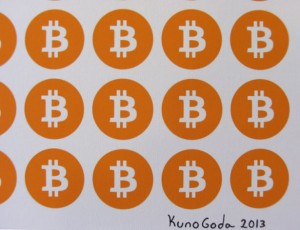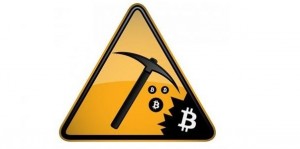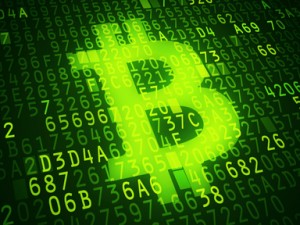A Few Bitcoin Myths Dispelled – The Coin Supply
 Today, we’re going through a few of the most common Bitcoin myths newcomers to the digital currency get presented.
Today, we’re going through a few of the most common Bitcoin myths newcomers to the digital currency get presented.
To start us off, a question you hear often from recent adopters of Bitcoin is something along the lines of…
“But wait, there are only 21 million coins! How could that possibly be enough? If every person on the planet wanted to own Bitcoins, then each person would only get to have 0.0003 BTC! How is that possible?”
And the old-timers respond “so? lol noob.”
In other words, or rather, in more polite terms, the old-timer is saying “And? Why does it matter how many Bitcoins someone has? The network is measured in satoshi. 0.0003 BTC is 30,000 satoshi.”
From here, the newcomer will likely ask about transaction fees. The current transaction fee is 0.0001 BTC – but that number changes as the BTC/USD exchange rate changes. It will keep changing. In order to keep up with changes in value of Bitcoin, it’s likely we’ll also see the total number of possible digits expand to see sub-satoshi (subtoshi) amounts recorded.
Perhaps one day, a satoshi will be a worthwhile unit. When that happens, the network will adapt. That’s part of what’s so wonderful about it.
 Another common misconception has to do with mining. I see it brought up every now and then, but it follows from a thought experiment proposed by the economist John Maynard Keynes.
Another common misconception has to do with mining. I see it brought up every now and then, but it follows from a thought experiment proposed by the economist John Maynard Keynes.
If the government wants to create jobs, but it doesn’t want to simply employ people for make-work activities, how about having it bury glass bottles filled with money inside of abandoned coal mines? An industry will spring up around it devoted to digging up those bottles of money, and ta-da, instant economic growth, at the cost of inflation.
It’s pretty obviously a very silly plan – everyone would be better served by having the money distributed some other way. However, the point of bringing up the thought experiment in this article is to highlight the misconception about Bitcoin it promotes.
Simply put, there are people who think that Bitcoin is essentially the same as this system. They are very dreadfully wrong, I’m afraid. In the thought experiment, there is nothing of value being added to the system through the make-work being done – there is no purpose to the burying and digging up of the bottles filled with money. In Bitcoin mining, there is a purpose to the enormous hashing power used. The purpose is to create the blockchain, the decentralized ledger that is the foundation of the system – that gives it purpose, that gives it worth, that gives it value. In the Keynesian thought experiment, yes, it is useless additional work being performed – not so with Bitcoin mining. Miners are being paid by the network for providing a very valuable service.
 Another one: inflation. This one is probably the most common of the ones I mentioned here.
Another one: inflation. This one is probably the most common of the ones I mentioned here.
“Libertarians all seem to love Bitcoin because they say it’s not inflationary, that there’s no one at the center making more,” the new Bitcoiner asks, “but it is inflationary! There are more being added every day! How can you say it’s not inflationary when miners selling the coins they receive is a large part of what is suppressing the price?”
They’re right that it’s inflationary, and we would be wrong to say it’s not. But it’s not inflationary in the same way that traditional currencies are, and that is what makes the difference. It’s inflationary in a very predictable manner, and only in a very predictable manner. We know exactly how and when more are going to be added, and we know at what rate they are added, and, most importantly, we know when they will stop being added. For good.
 Inflation in-and-of itself is not a bad thing. Unpredictable inflation is. Unpredictable inflation creates risk. Markets? They hate risk. Bitcoin is lower risk than national currencies, whose rates of inflation are inherently uncertained – determined by the number of wars being fought, by who bribed who, by which banks are being bailed out this year. Bitcoin’s inflation is determined by math.
Inflation in-and-of itself is not a bad thing. Unpredictable inflation is. Unpredictable inflation creates risk. Markets? They hate risk. Bitcoin is lower risk than national currencies, whose rates of inflation are inherently uncertained – determined by the number of wars being fought, by who bribed who, by which banks are being bailed out this year. Bitcoin’s inflation is determined by math.
So that’s three of the many myths around Bitcoin – divisibility and scaling, mining being make-work for money, and non-inflationary inflation. I’ll probably do some more in the future – leave a comment if there are any in particular you’d like to see!








